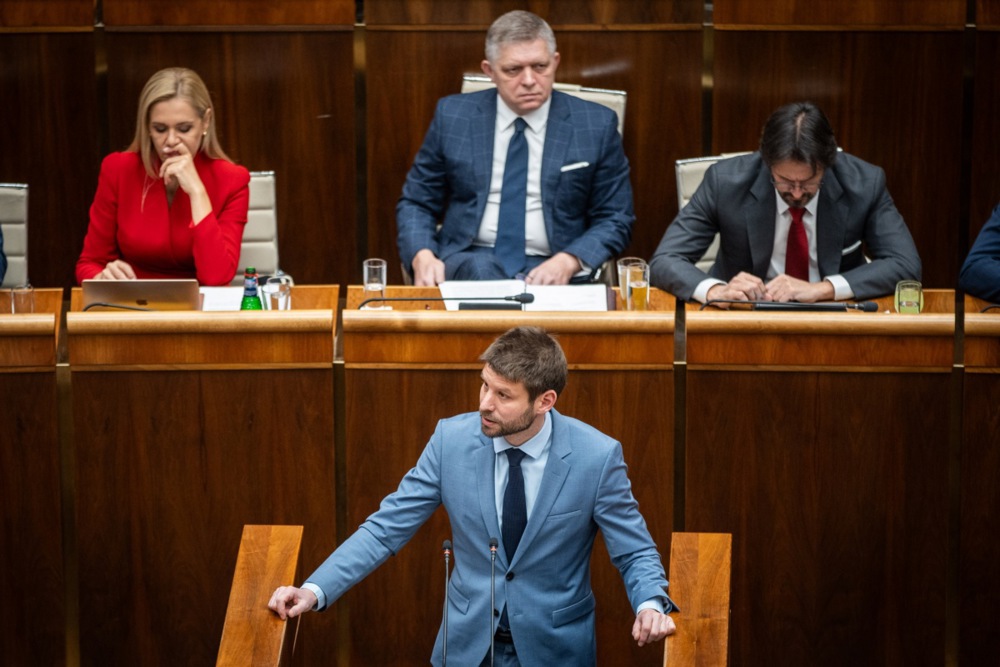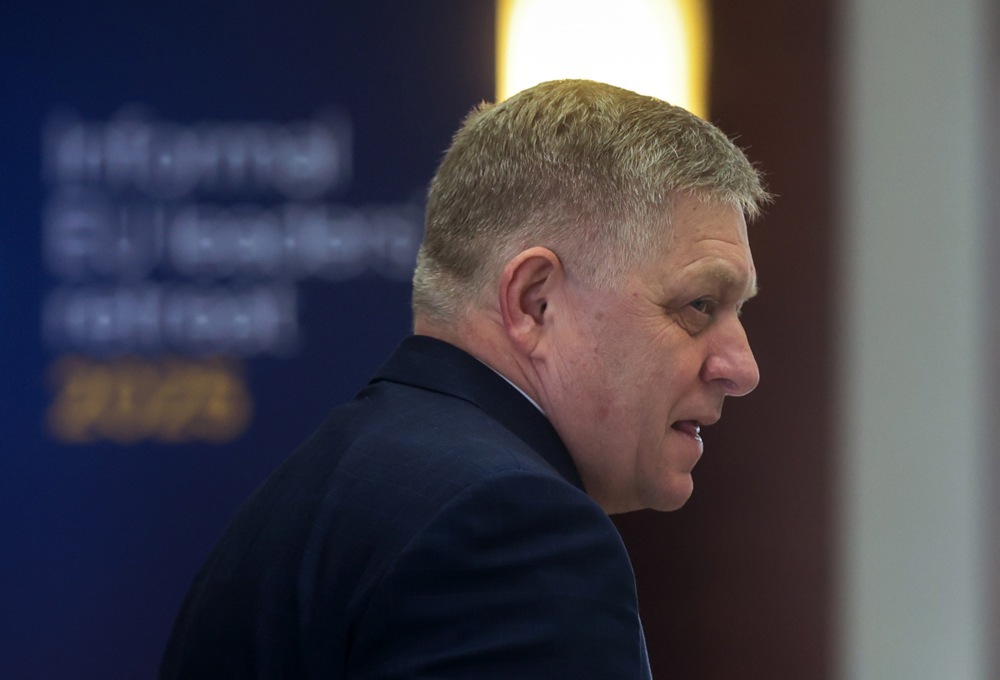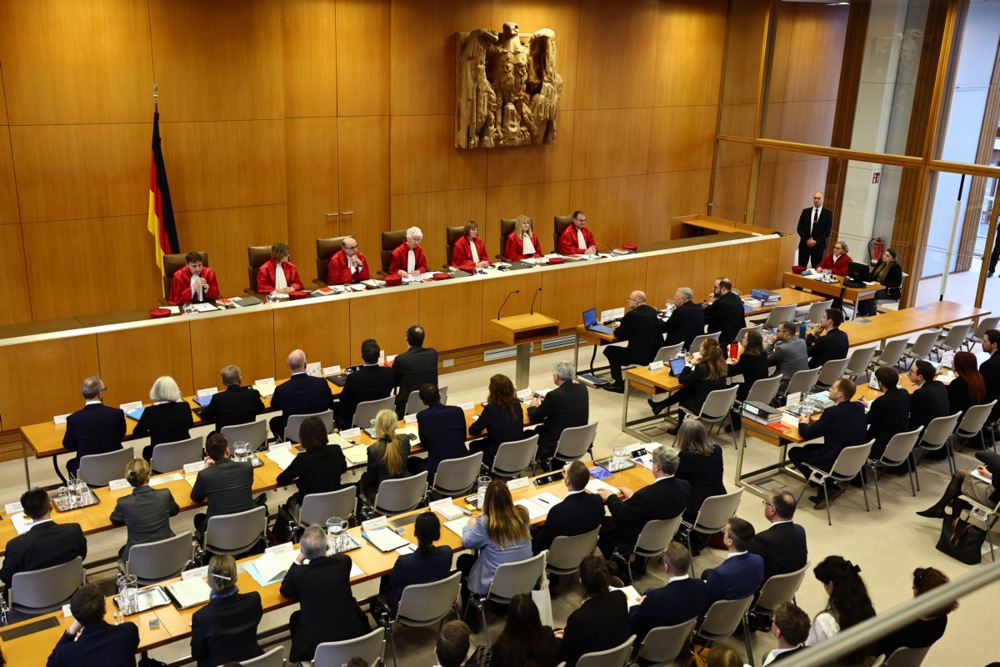Slovakia’s parliament or National Council has approved an amendment to enshrine “traditional” values on gender and sexuality in the country’s Constitution.
The amendment would also prevent the European Union from overruling Slovakian decisions, especially in the field of cultural and ethical issues.
Progressive LGBTQI-activists have been highly critical of the change, as have several NGOs.
Earlier this year, European Commissioner for Justice Michael McGrath stated the reform would break EU law.
With the narrowest required majority of 90 out of 150 lawmakers, the amendment was approved.
The changes explicitly recognise only two sexes — male and female — while also restricting child adoption to married couples, effectively excluding same-sex couples. They also require parental consent for sex education and prioritising national sovereignty over certain international human rights treaties.
With the reinforcement of family and parental rights, a ban on surrogate motherhood or the right of a child to know their parents are now also constitutionally enshrined.
This fulfils a key promise from Prime Minister Robert Fico’s government to “curb progressive ideologies” and protect traditional family values.
“Strengthening the protection of traditional values is key to preserving the cultural heritage of the Slovak Republic and ensuring legal stability,” the approved amendment states.
“Therefore, the draft constitutional act responds to the need to protect cultural heritage enshrined in the preamble of the Constitution of the Slovak Republic, which is specifically linked to the recognition of marriage between a man and a woman as a unique union,” it said.
On November 1, the changes to the Constitution will come into effect.
The amendment was initiated by Fico’s Smer-SD party, with support from some opposition members, including from the Christian Democratic Movement (KDH) and the Slovakia Movement.
Fico thanked all MP’s who voted in favour, calling it a historic step.
He said that liberalism and progressivism are undermining and destroying Europe. “I don’t know what’s behind it.
“I guarantee you that now we will go to the club and have a shot,” Fico said about his big success, adding that this is a victory for his country.
“This is Slovakia,” he declared.
The Ministry of Justice rejected claims that the legislative process violated fundamental principles for amending constitutional and legal norms.
Justice Minister Boris Susko stated: “The draft constitutional amendment followed the standard legislative procedure, with adequate timeframes and opportunities for all relevant parties to participate and express their views.”
Matúš Šutaj Eštok, Minister of the Interior, wrote on social media the move showed “that in Slovakia we still have a normal view of the world and we have only two genders: a man and a woman – who must have the same salary for the same work”.
MEP and the chairman of the right-wing Republic Movement, Milan Uhrík, described the approval of the amendment to the Constitution as excellent on social media. “Hopefully progressives will stop inventing other genders,” he wrote.
“For common sense!”
Opposition leader Michal Simecka, of the Progressive Slovakia Party, called the vote “shameful”.
He claimed the amendment “will hurt the people of Slovakia and call into question Slovakia’s place in the EU and its legal space”.
On September 24, the Council of Europe’s Venice Commission issued an urgent opinion on the draft amendment.
It argued it had sparked concerns among parts of the opposition, civil society and the international community about the legislative process and the potential risks it posed. That was in particular relating to legal certainty, the protection of human rights, and Slovakia’s compliance with its international obligations.
The Venice Commission called for the law to ensure that adoption decisions are based solely on the best interests of the child, assessed on a case-by-case basis and made without discrimination — including on the grounds of sexual orientation — in line with European Court of Human Rights standards.
It stressed the “State’s duty to provide accessible, objective, and non-discriminatory education, as well as children’s rights to access information essential for their well-being and development” and asked for the words “biologically determined” to be deleted.
NGO Amnesty International said the approved changes in Slovakia were “draconian” and “a step towards erosion of human rights”.
“This is devastating news. Instead of taking concrete steps to protect the rights of LGBTI people, children, and women, the Slovakian parliament voted to pass these amendments, which put the constitution in direct contradiction with international law,” it said.
Rado Sloboda, Director of Amnesty International Slovakia, added: “Today is another dark day for Slovakia, which is already facing a series of cascading attacks on human rights and the rule of law.”
Brussels threatens Slovakia with immediate legal action if the government pushes ahead with a proposed law requiring NGOs that receive funding from abroad to label themselves “organisations with foreign support”. https://t.co/TVSdmIML96
— Brussels Signal (@brusselssignal) July 29, 2024





